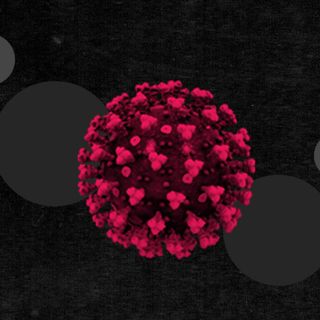The World Health Organization just gave a conditional green light to Covid19 human challenge trials — an “ethically sensitive,” controversial form of experimental research that involves injecting an infectious pathogen into human volunteers as a way to test vaccines on them in a faster, more efficient manner. WHO states these challenge trials can prove to be an effective preliminary step in testing Covid19 vaccines, filtering out the more promising ones for subsequently larger, more thorough vaccine trials.
“It’s not every day we give a healthy individual an exposure to a pathogen — the very same thing doctors are trying to protect people from,” Dr. Nir Eyal, director of the Center for Population-Level Bioethics at Rutgers University, told NBC News. In a separate paper published in The Journal of Infectious Diseases, Dr. Eyal advocates for challenge trials for Covid19 as a replacement to the final phase of vaccine testing that often takes months, if not years, to complete. In the final phase of most vaccine trials, participants are given either the vaccine or the placebo, and their health is tracked for extended periods of time to assess the efficacy of the drug administered to them. This requires researchers to wait — often several years — for a vast number of people to be infected naturally and display responses (or lack thereof) to the vaccine or placebo. Dr. Eyal says challenged trials would shorten this phase of Covid19 vaccine testing greatly, and require fewer participants — as few as 100 volunteers.
WHO recommends young, healthy adults be tapped for these challenge trials, as they have been found to be the lowest-risk demographic — hospitalizations for those between 18 to 30 years old are estimated at 1% for all infected patients, and fatalities are estimated at 0.3%. Despite these reassuringly low numbers, challenge trials that require humans to be treated as guinea pigs are an ethical minefield that WHO warns scientists to carefully navigate, through systematic assessment of risks and benefits, several layers of consultations and expert reviews, and most important of all, informed consent.
Related on The Swaddle:
The Quality of Scientific Research Has Deteriorated Amidst the Covid19 Pandemic. Ethicists Explain How to Fix It.
“Healthy adults may consent when they are well informed and understand what the risks are that they are agreeing to take – even if those risks may be considerably greater than minimal,” according to the WHO. “For this reason [the absolute requirement for truly informed consent] is not deemed acceptable at this time to consider conducting human challenge trials in children, or in any other vulnerable population with diminished capacity to give informed consent.” Currently, more than 15,000 people from 102 countries have signed up to participate in a future challenge trial, according to U.S.-based campaign group 1DaySooner.
Challenge trials have long been controversial — the first vaccine for smallpox, which ultimately helped eradicate a disease that killed more than 300 million people, was first tested on an eight-year-old child whom a scientist infected with cowpox, a less virulent virus. Today, the consent-related ramifications of such an experiment would render it highly unethical. In the 1940s, the Nazis intentionally infected prisoners with tubercle bacilli in order to develop a tuberculosis vaccine, which ended up making 200 people fatally sick. Today, however, scientists have better technology to monitor and control infections, and they follow rigorous methods of obtaining consent from trial participants, which makes human challenge trials in the modern-day less dangerous, but ethically grey nonetheless.
For malaria, typhoid, and influenza, for example, challenge trials have been a mainstay in modern vaccine development, mostly because scientists had treatment options available for these diseases in case the vaccines didn’t work. But the coronavirus pandemic proves to be one of the few unique instances in which there are no curative treatment options if participants were to get severely sick and unresponsive to the vaccine, which makes its ethics murkier. Tack on the precious little we know about the coronavirus — scientists don’t know for certain whom it kills and how often, what its range of symptoms look like, what its long-term effects are — and infecting a mysterious, mutating virus into humans starts ringing alarm bells.
In order to minimize this risk, scientists will also have to figure out the correct dose of coronavirus to inject into volunteers — it would need to be enough to cause illness, but not severe illness. These risks, however, fall “within acceptable upper limits,” the WHO states, adding a coronavirus vaccine is the only way the world can achieve some semblance of normalcy. The longer the wait for the vaccine, the longer marginalized groups in poorer countries under lockdown go hungry, the more people die in this pandemic. At the end of the day, is the risk worth the possibility of a better future?




